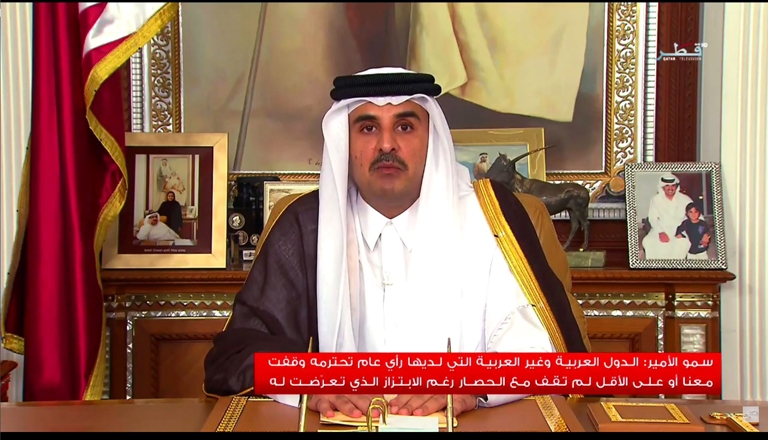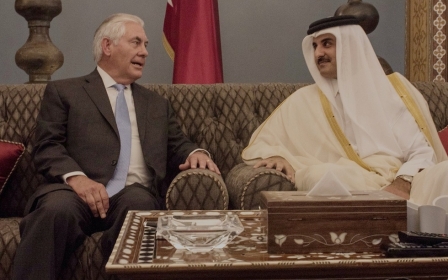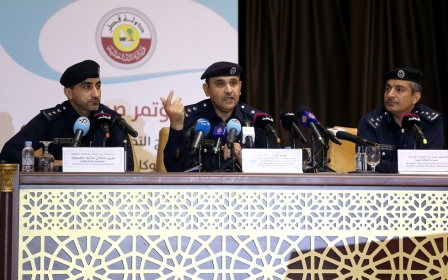Gulf crisis: Qatar's Emir open to dialogue but 'sovereignty must be respected'

Qatar's ruling emir said on Friday he is ready for dialogue, but any solution to the Gulf crisis must respect Qatar's sovereignty.
Sheikh Tamim bin Hamad Al Thani also said in a televised speech that he values Kuwait's mediation and the support of other countries for their efforts, including the United States, Turkey and Germany.
"We are open to dialogue to resolve the outstanding problems," so long as Qatar's "sovereignty is respected," Sheikh Tamim said in his first public comments since Saudi Arabia and its allies severed ties with gas-rich Qatar.
Sheikh Tammim said the anti-Qatar move was premeditated and "planned well in advance".
"Plotters carried out an attack on the sovereignty of the state of Qatar by planting statements that had not been spoken, in order to mislead public opinion and the world and achieve predetermined goals," he said.
Sheikh Tamim insisted that any deal "must not take effect in the form of diktats but rather through mutual commitments undertaken by all the parties.
"We are open to dialogue to find solutions to lingering problems within the framework of respect for the sovereignty and will of each state as mutual undertakings and joints commitments binding all," he said.
The emir added that in spite of the blockade, life is going along normally in the country.
He also said that Qatar has fought against and continues to combat terrorism.
"Qatar is fighting terrorism, relentlessly and without compromises, and there is international recognition of Qatar's role in this regard," he said.
He ended his speech by criticising the closure of the al-Aqsa mosque in Jerusalem and expressed solidarity with the Palestinian people.
The official QNA news agency, quoting the emir's office, said earlier that Sheikh Tamim would deliver his speech to address "the future orientation of Qatar in light of the current Gulf crisis".
On 5 June, Sunni-ruled Saudi Arabia, Bahrain, the United Arab Emirates and Egypt cut ties with Qatar, accusing it of backing extremism and fostering ties with their Shia rival Iran. Doha denies the claim.
Saudi Arabia and its allies also imposed sanctions on Doha, including closing its only land border, refusing Qatar access to their airspace and ordering their citizens back from Qatar.
And on 22 June, they went on to present the emirate with a list of 13 demands with which to comply to resolve the crisis.
Since then, the boycotting quartet has cut its demands to six points.
Kuwait has been trying to mediate the crisis and several top Western diplomats have toured the region to try to defuse the row, including US Secretary of State Rex Tillerson.
Middle East Eye propose une couverture et une analyse indépendantes et incomparables du Moyen-Orient, de l’Afrique du Nord et d’autres régions du monde. Pour en savoir plus sur la reprise de ce contenu et les frais qui s’appliquent, veuillez remplir ce formulaire [en anglais]. Pour en savoir plus sur MEE, cliquez ici [en anglais].




